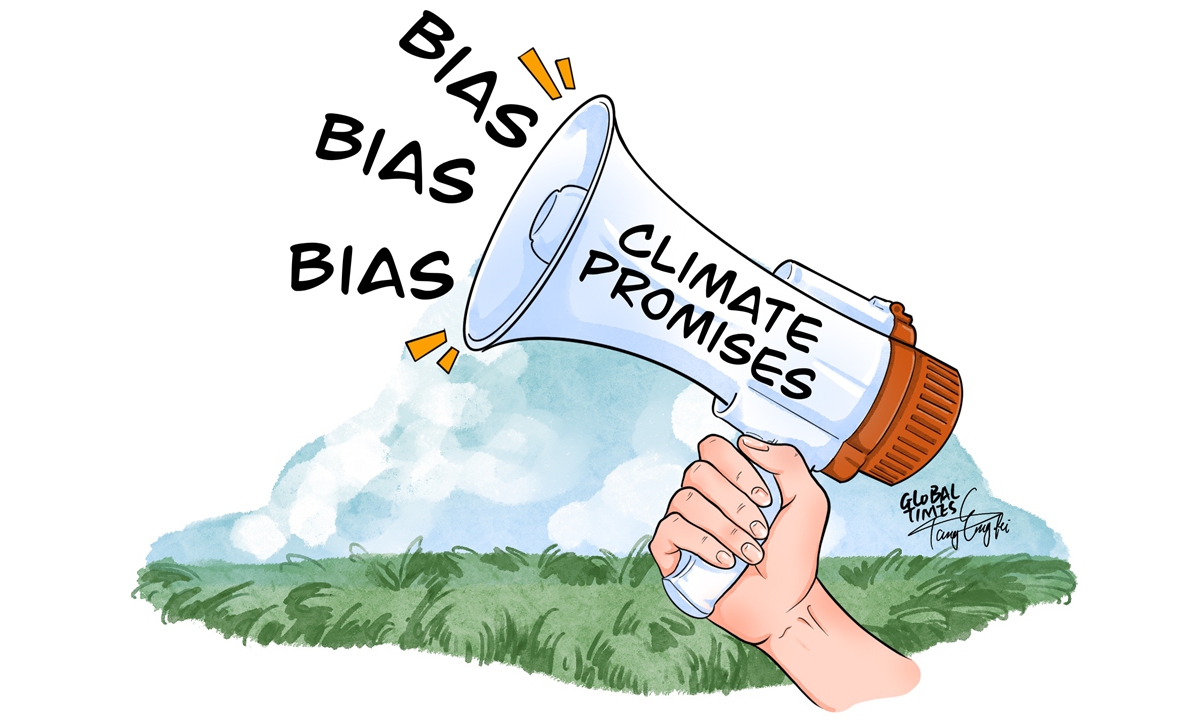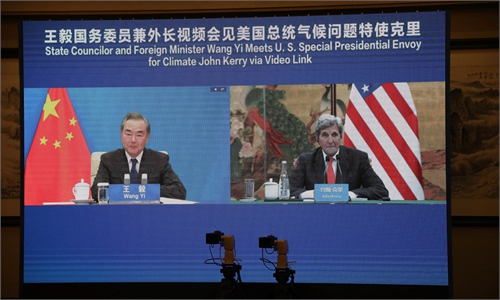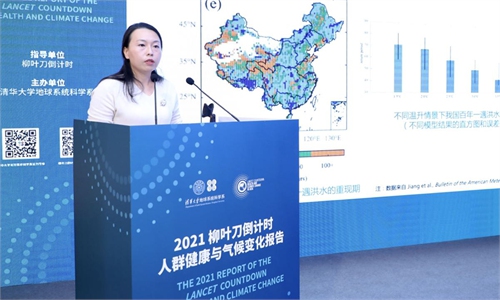COMMENTS / EXPERT ASSESSMENT
West’s faultfinding toxic to cooperation on climate change

Illustration: Tang Tengfei/Global Times
As tackling climate change becomes an increasingly mainstream topic across the world, some Western media outlets have not missed the chance to show their imaginary moral superiority by pointing fingers at developing nations, with their artillery appears converging on India recently.In a Washington Post report on Monday, India's considered lockdown due to air pollution and China's recently increased coal production were interpreted as reflecting "the difficulty of combating global warming just after the end of a landmark UN conference."
As usual, Western media outlets choose to "observe" developing countries through magnifying lens, while turning a blind eye over the long-lasting nonfeasance of richer countries, especially the US, which is eagerly attempting to claim the leadership on the topic.
Before the UN Climate Change Conference (COP26), India had faced mounting pressure from the West, being urged to offer an exact goal to achieve net zero carbon emissions. A BBC report on September 20 claimed that "the world awaits India's net zero emission deadline."
Though Indian officials expressed reluctance and discontent, the country still made a pledge at COP26, promising to achieve net-zero emissions by 2070. It won't be easy for India or any other country in the world.
Behind the climate change crisis, the responsibility of the developed countries is clear for all to see. Following decades of industrialization, emitted CO2 remains in the atmosphere and may continue to impact Earth's climate pattern for thousands of years to come.
Although it takes all parties to solve the climate problem, contradictions between development and emission reduction is an unavoidable issue for developing countries. For instance, according to the recently released Global Hunger Index 2021, India was ranked 101 out of 116 countries and regions. Pressing India to reduce emission, while ignoring its demand to speed up development, is both unfair and unreasonable.
Ironically, the contradictions between development and emission reduction has appeared to be a whole other story among rich countries, such as the US. The Bush administration once withdrew from the Kyoto Protocol signed by the Clinton administration, citing that it could hurt the growth of the world's largest economy.
Later in 2019, the Trump administration announced its exit from the Paris Agreement signed by the Obama administration. The Biden administration has managed to reverse the withdrawal, but it seems unable to guarantee the world that the US government can maintain its participation over the long-term.
Besides the in-and-out game being played by the US, the country is still the world's largest exporter of solid waste and the largest consumer of plastic per capita. And as the world's largest cumulative emitter of greenhouse gases, the US emits 3.3 times more carbon per capita than the global average.
There are 69 countries with a carbon price ranging from $1 to $139 per metric ton, and the US is not one of them, according to a CNBC report. Though Biden has set a new target for the US to achieve a 50-52 percent reduction from 2005 levels in economy-wide net greenhouse gas pollution in 2030, there are yet to be any tangible measures being rolled out.
The US has a long record of being irresponsible on climate change issues, and we genuinely hope the country could quit trifling with the climate crisis facing humanity. As for the Western media, they should look at the whole picture instead of distorting facts and deflate responsibility, if they really want to help address the actual problem.
The author is an editor with the Global Times. bizopinion@globaltimes.com.cn



